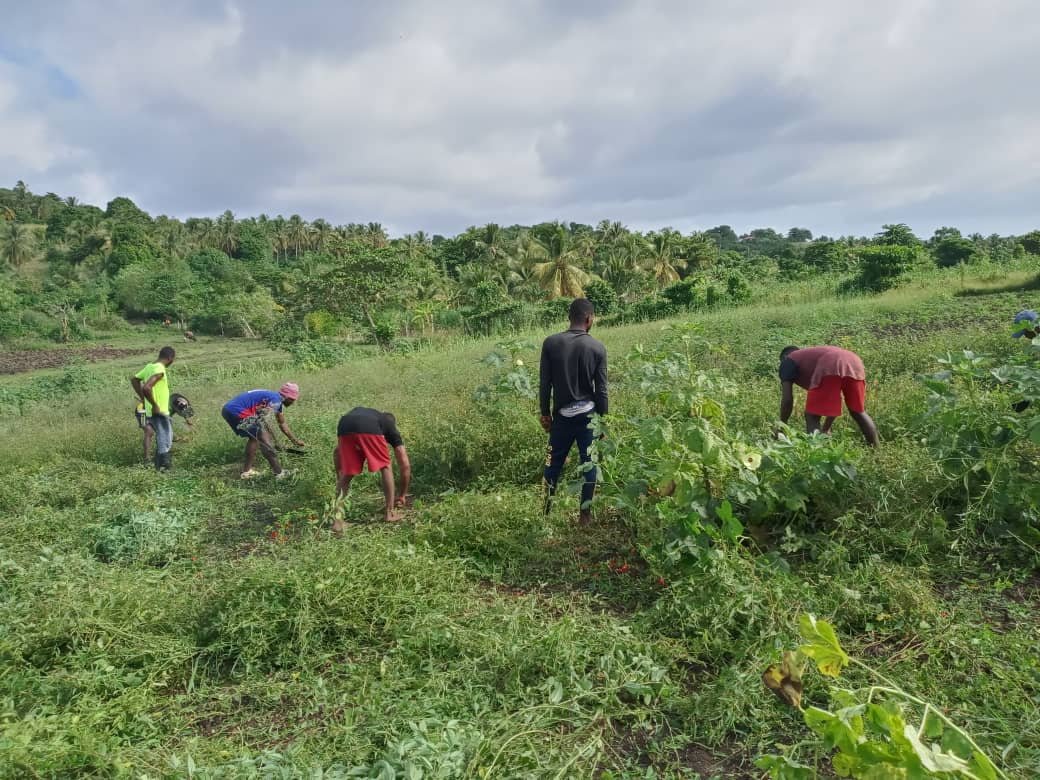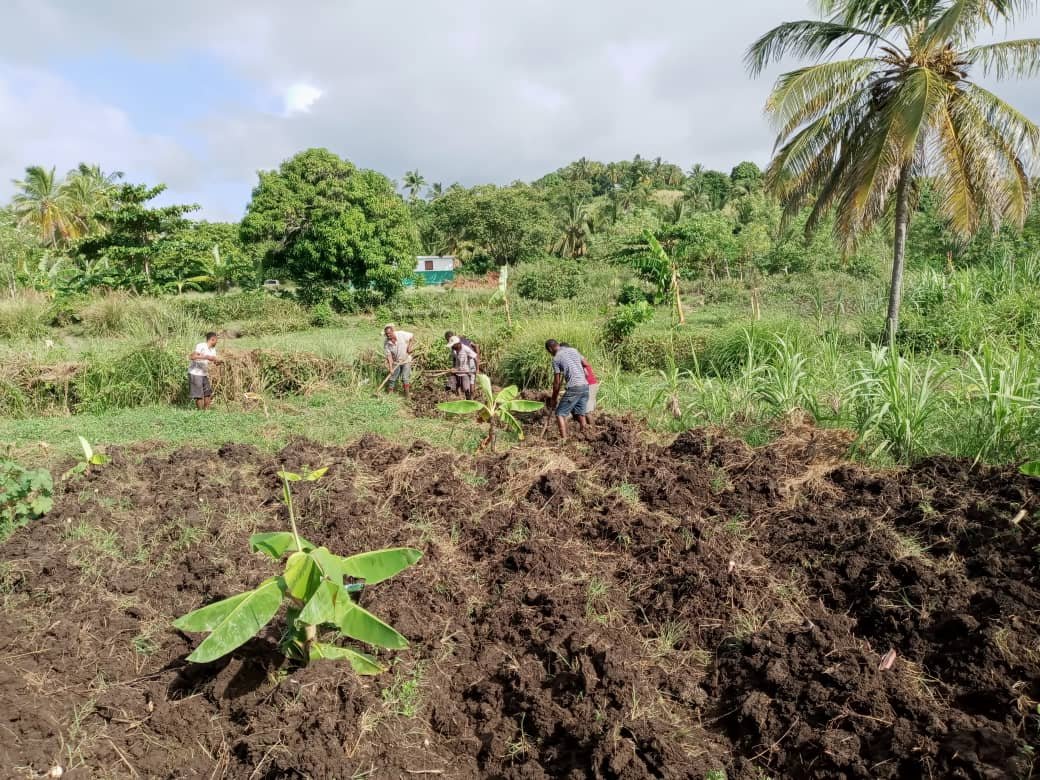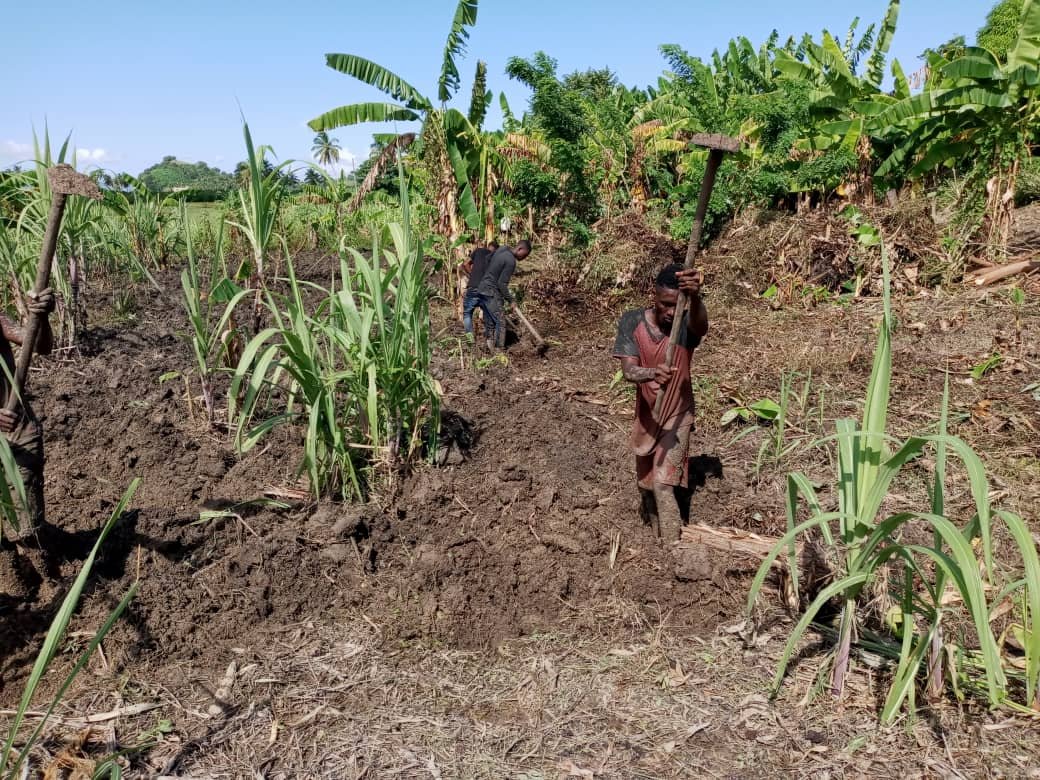Meaningful employment and food production during difficult times
Happy new year from the Good Samaritan Foundation! The close of the previous year caused us to reflect back on some of the achievements of the past year. One in particular we are very proud of, and did not want to overlook in the midst of all the good news about the construction of the IMECT school building.
In the final part of 2022, GSF agronomist Anousse Paul continued his impressive work to provide a resilient backbone of food production for the community of Ile A Vache and our La Hatte school. Because of ongoing crisis in the country at large, many people even on the separated island of Ile A Vache find themselves out of work and with few options to generate income. At the same time, Anousse’s agricultural operation has become more important than ever to provide food for the island while the rest of the country remains as complicated and challenging as ever. The food — such as sweet potato, plantain, peanut, cassava, and beans — produced by this program and the rest of Anousse’s efforts largely supplies our school lunch program at La Hatte school.
Putting these two challenges together, the “Cash for Work” program was born. Anousse describes it in his own words:
“The program “Cash for Work” involved paying vulnerable people cash wages in exchange for assisting certain farmers [of Ile A Vache] in their fields during the sociopolitical crisis of October-December. This program allowed people to earn a little money twice a week as well as breakfast every day. It also greatly aided local farmers in the maintenance of their fields.”
Even though bad news does come for us too, we are so proud of our staff who are able to implement responsive solutions like this. In another example, although we are not able to produce eggs and chicken currently because it became too unsafe, difficult, and expensive to source chicken feed from mainland Hispaniola, Anousse is already refocusing on a less intensive breed of chickens which can be fed by vegetative materials that he and local farmers can grow themselves on the island. In his words:
Unfortunately, we have been obliged to stop our production of eggs and chicken on the island because of the difficulty in obtaining feed, so for the moment our henhouses are empty. However, in early 2023 we would like to relaunch chicken production with a more tolerant and resilient breed. We are sourcing a flock of 300 “Sasso” breed chickens to restart production again soon. We hope to bring more value to the idea of raising animals who can be fed plants we can find and produce on the island ourselves.”
Because of the generous support of our donors and sponsors, we are able to carry out these kinds of creative — and hugely impactful — programs to respond to the evolving crisis affecting everyone in Haiti, including the communities where GSF works. We at GSF are ever grateful to those of you who are making this possible. We are proud to be able to share so many stories of success and good news during times as difficult as these!



